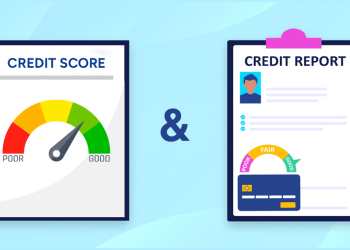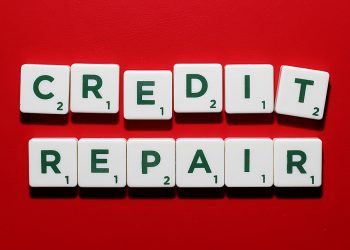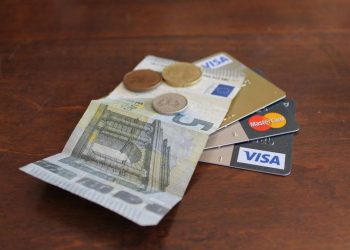Introduction: More Than Just a Number
Credit is often perceived as a mere financial tool or a three-digit number representing one’s financial behavior. However, in reality, credit is much more than that. It serves as the backbone of modern economies, enabling individuals, businesses, and governments to function effectively in a world driven by consumption, investment, and financial interdependence. A deeper understanding of credit not only enhances one’s financial literacy but also empowers smarter economic decisions.
What is Credit?
Credit, in its simplest form, is the ability to borrow money or access goods and services with the promise to repay at a later date. The concept hinges on trust — trust that the borrower will repay what they owe. In today’s financial system, this trust is quantified and regulated through credit scores, histories, and institutions that assess risk and manage lending activities.
Forms of Credit:
-
Revolving Credit: Examples include credit cards and lines of credit, where borrowers can use funds up to a limit and repay in flexible amounts.
-
Installment Credit: Loans that are repaid in fixed payments over time, such as auto loans, student loans, or mortgages.
-
Open Credit: Utilities and other services that allow usage before payment, billed at regular intervals.
The Role of Credit in Personal Finance
On an individual level, credit opens doors to opportunities that might otherwise remain inaccessible. Buying a home, financing education, or managing cash flow during emergencies often requires access to credit.
Benefits of Responsible Credit Use:
-
Improved Credit Score: Timely payments and responsible utilization can lead to higher credit scores, which unlock better financial products and lower interest rates.
-
Increased Financial Flexibility: Credit allows consumers to make significant purchases without depleting their savings.
-
Emergency Readiness: Access to credit can act as a financial safety net during unforeseen events.
Risks of Mismanaged Credit:
-
Debt Accumulation: Excessive borrowing without a plan for repayment can spiral into unmanageable debt.
-
Damaged Credit History: Missed payments and high credit utilization negatively impact credit scores, affecting future borrowing ability.
-
Interest Burden: Poor credit management can result in high interest charges, increasing the cost of borrowed funds.
Credit in the Business World
For businesses, credit is essential for maintaining operations, expanding services, and weathering economic downturns. Companies use credit to purchase inventory, invest in growth, and maintain liquidity.
Key Business Credit Instruments:
-
Business Lines of Credit: Provide flexible funding for ongoing operational expenses.
-
Trade Credit: Allows businesses to buy goods and pay suppliers later.
-
Commercial Loans: Used for expansion, infrastructure, or capital investment.
A healthy business credit profile helps companies build trust with suppliers, negotiate better terms, and secure funding on favorable terms.
The Credit Score: A Modern Economic Passport
A credit score is a numerical expression of a person’s creditworthiness, typically ranging from 300 to 850. Financial institutions use this score to determine risk levels associated with lending to an individual or business.
Factors Affecting Credit Scores:
-
Payment History (35%) – Consistency in paying bills on time
-
Amounts Owed (30%) – Credit utilization ratio and outstanding debt
-
Length of Credit History (15%) – Age of credit accounts
-
Credit Mix (10%) – Variety of credit types used
-
New Credit (10%) – Frequency of new credit inquiries and accounts
Maintaining a good credit score can dramatically impact financial outcomes, from securing rental housing to qualifying for a low-interest mortgage.
Credit’s Role in National and Global Economies
Credit is not just a personal or business tool — it fuels entire economies. Nations borrow through bonds, corporations issue debt to raise capital, and central banks use credit-based policies to regulate monetary flow.
Economic Impacts:
-
Stimulates Growth: Easy access to credit increases consumer spending and business investment.
-
Monetary Policy Tool: Central banks influence interest rates to manage inflation and stabilize currencies.
-
Market Confidence: Robust credit systems foster trust, attracting foreign investment and supporting economic development.
However, when credit systems are mismanaged, as seen in the 2008 global financial crisis, they can lead to economic collapse. Prudent credit regulation and financial transparency are essential to maintaining economic health.
Building and Managing Good Credit
Credit, when understood and managed wisely, becomes a powerful ally. Here are key strategies for maintaining a healthy credit profile:
Smart Credit Practices:
-
Pay Bills Promptly: Payment history is the most influential factor in credit scoring.
-
Keep Utilization Low: Aim to use less than 30% of available credit.
-
Limit New Credit Applications: Too many inquiries can temporarily lower your score.
-
Diversify Credit Types: A mix of revolving and installment credit shows financial versatility.
-
Review Credit Reports Regularly: Monitoring for errors helps avoid unexpected score drops.
Developing good habits early and maintaining consistency can lead to lifelong financial benefits.
The Ethical Dimension of Credit
Credit also has a moral and ethical component. Lenders have a responsibility to ensure fair and non-predatory lending practices, while borrowers have a duty to honor their commitments. As discussions around financial equity gain traction, issues such as access to credit for underbanked populations and credit discrimination are becoming central to financial reform efforts.
Conclusion: Credit as a Catalyst for Empowerment
In a world that runs increasingly on borrowed capital, credit stands as a critical pillar supporting personal ambitions, corporate strategies, and national development. Understanding how it works — and how to use it wisely — is vital for financial health and security. When approached with discipline and informed awareness, credit transforms from a liability into a tool for long-term growth, stability, and opportunity.
















